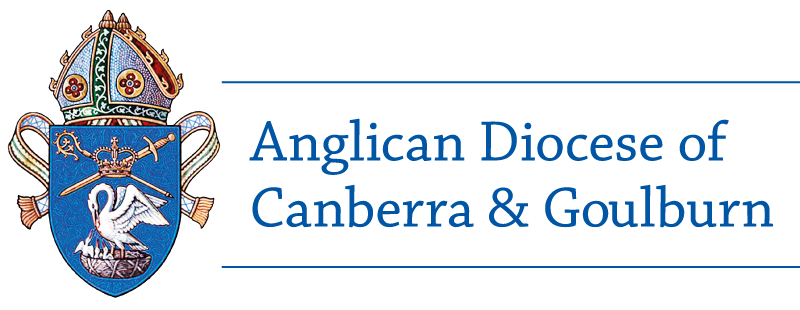A gathering of family, friends and community members recently celebrated the tireless campaign of a Canberra-Goulburn clergyman for justice for Aboriginal people.
On April 30 Bishop Mark unveiled a plaque in the grounds of St John’s Bega in memory of Archdeacon Frank Woodwell, who served as Rector of the Parish from 1966 to 1974. During that time Archdeacon Woodwell was instrumental in arranging for church land to be set aside for the construction of the first houses for Aboriginal people within the town of Bega. This happened in the face of much opposition from amongst the community and churches.
Speakers at the unveiling included Aunty Colleen Dixon, whose family moved into the first house, and Pastor Ossie Cruise, who campaigned alongside Archdeacon Woodwell.’
After a Welcome to Country and personal reflection from Aunty Colleen, Bishop Mark shared:
‘In the Old Testament prophet Micah 6:8 we are given this short summary of our calling before God: ‘He has told you, O mortal, what is good; and what does the Lord require of you but to do justice, and to love kindness, and to walk humbly with your God?’ In their life and ministry in the Bega Valley Archdeacon Frank and Mrs Merle Woodwell embodied this vision. The Woodwells’ commitment to justice was seen particularly in their advocacy work on behalf of the Aboriginal people of the Bega Valley. Through their leadership the first inhabitants and custodians of this land were welcomed and honoured.
‘Lest we think the welcome was all one way I quote from the Archdeacon’s memoir – ‘When we were preparing to leave Bega the Aboriginal community arranged a special farewell in the parish hall in their relaxed style with simple fare of sandwiches, cakes and soft drinks. Ossie Cruse and Mrs Pitman spoke thankfully on behalf of the Aboriginal Community.’
‘Justice that builds community and grows gratitude. It is a legacy worth celebrating and an example worth following.’
Mark McKenna, who researched the work of Frank Woodwell when writing his history of South-East NSW, Looking for Blackfella’s Point, then spoke, saying:
‘[Woodwell] offered what was then a radically different account of what the white man had done to Aboriginal people:
Since the white man came to this country, [the original Australians] have been deprived of their opportunity to live on the same footing as those who took this country from [them] … A start must be made in Bega if our consciences are to be purged of the shame … that is condemning a section of the human race to a deplorable state of physical, social and mental degradation.
‘For Woodwell, Christianity was first and foremost a lived faith. Praying for the less fortunate was not enough; it was also necessary to provide material, social and political support to those in need. He came to Bega carrying a different understanding of Christianity and a different vision of Australian society …
‘Frank Woodwell stood up against injustice at a time when it was much harder to do than it is today. Together with his supporters, both Aboriginal and non-Aboriginal, he formed the Bega Valley Aborigines Advancement Association …
‘As Woodwell explained, the Aboriginal issue played ‘centre stage’ during his time in the Bega area. To him, Aboriginal people on the south coast in the 1960s were fringe dwellers with lost culture, little hope, fractured family ties, poor health and little schooling, dependent on a few vegetable growers or timber mills for casual employment. Their living conditions were appalling, he thought, confined as they were to the rubbish dump, river bank or huts and shacks on growers’ properties and with little control over their lives …
‘Frank Woodwell was a champion not only of Aboriginal rights, but of human rights. I know we’re proud to honour his contribution, and proud to continue to work with everyone here today to carry on the spirit of his legacy.
‘Because there is so much more work to do.’

